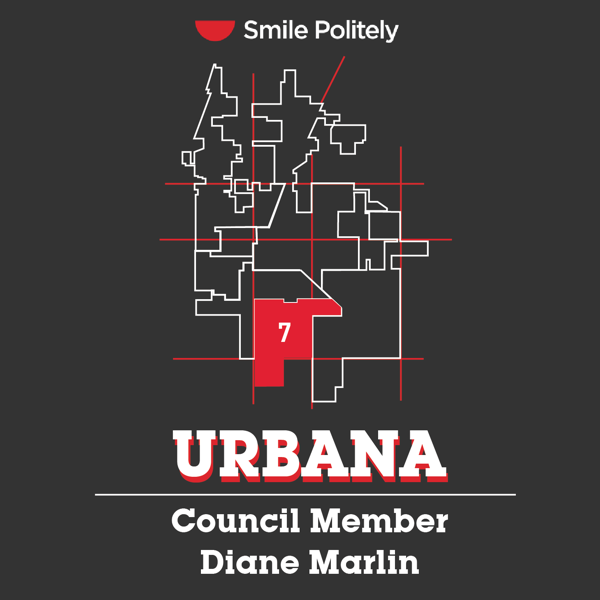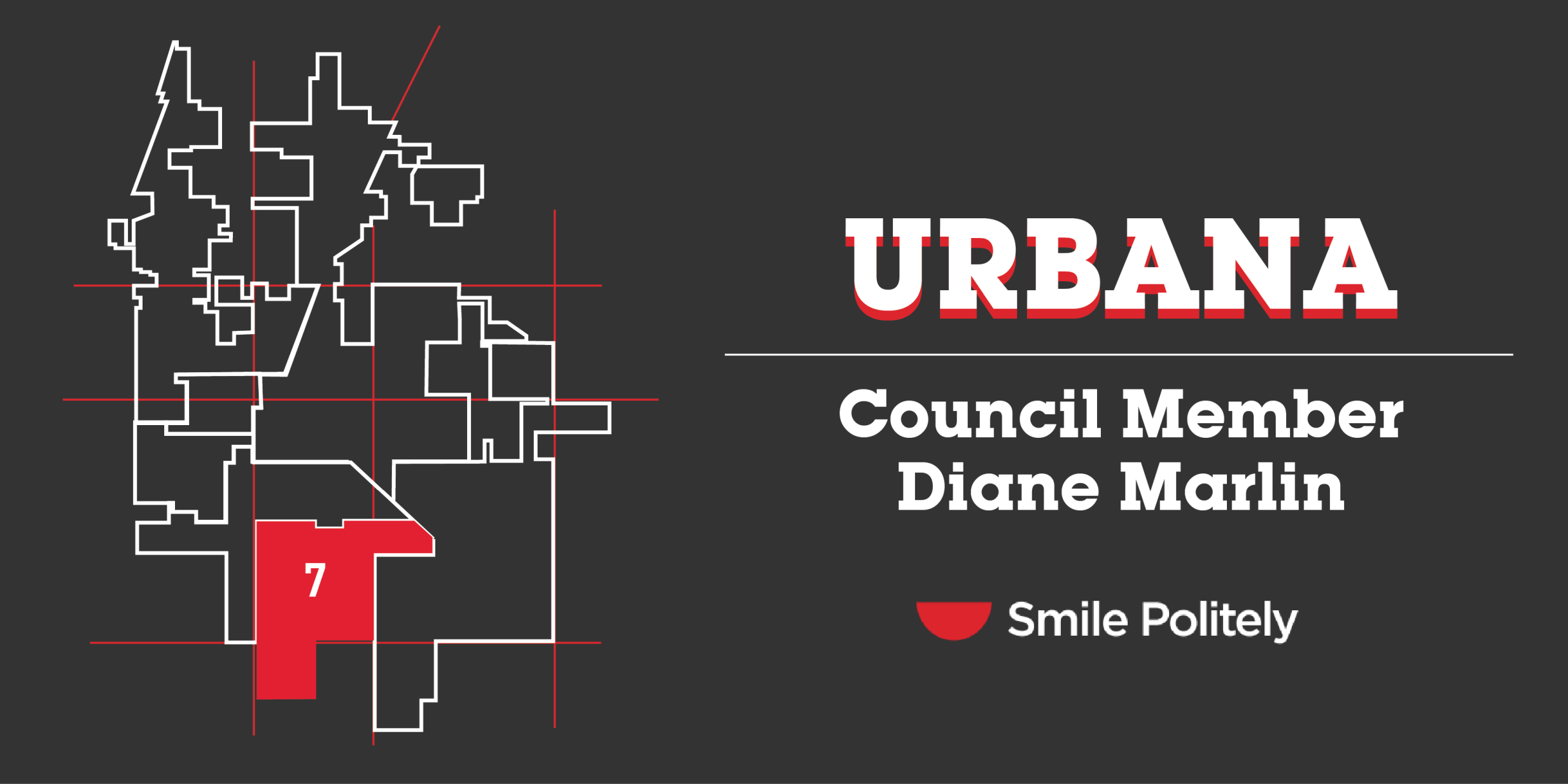
I recently sat down with, Diane Marlin, an alderwoman from Urbana, as part of our ongoing series on public officials. Here’s what she had to say.
Question 1.
Smile Politely: What are your connections to the city of Urbana?
Diane Marlin: I came here in 1971 as a freshman at the university. Like most people, I figured I would spend some time on campus and leave. But one thing led to another, and I’m still here and happy about it.
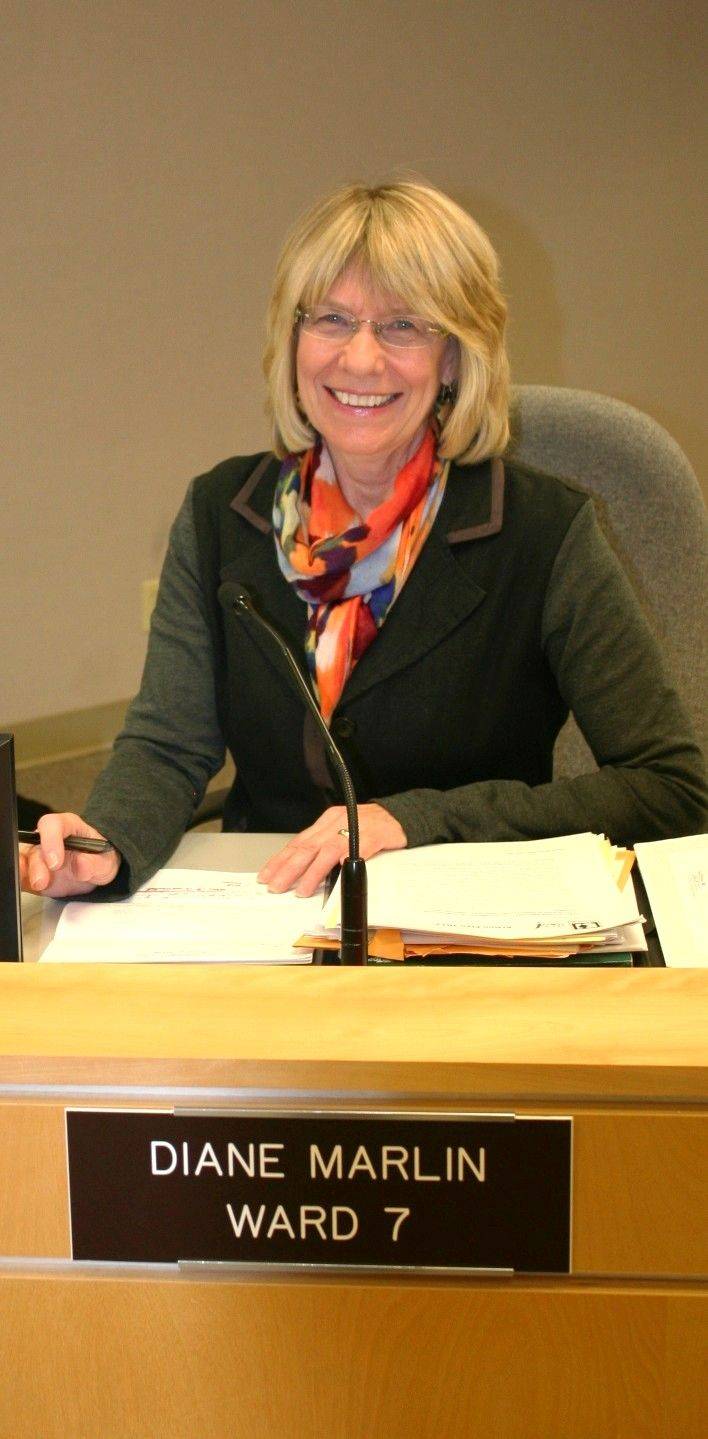
Question 2.
SP: What is your professional background?
Marlin: I got a Bachelor’s in Human Development and Family Studies and a Master’s in Foods and Nutrition, both from the U of I. I worked in food service, and I taught part-time at Parkland College for a long time as my kids were growing up. I helped build Christopher Hall and develop the Family Resiliency Center, where was I was a research coordinator. I retired from the U of I in 2010. I’m also a registered dietician.
Question 3.
SP: How did you get involved with the Urbana city council?
Marlin: We moved to a new neighborhood in Urbana in 2004. I got to know a lot of my new neighbors and people in that area, and we became concerned about two issues.
One, on our side of the neighborhood, involved the redevelopment of Orchard Downs. Back then, the Chancellor and the University had a vision for developing Orchard Downs, and the neighbors were interested in what was going to happen because we lived a couple blocks away. We were also very concerned about the deterioration and poor management of some of the rental properties near Philo road. Those issues brought a lot of people together. In 2005, I co-founded the Southeast Urbana Neighborhood Association with some other folks. We were part of the mayor’s Neighborhood Safety Task Force. And then in 2009, I decided to run for city council. There are several of us on city council now who go our start in neighborhood associations.
Question 4.
SP: What issues have you been most involved in during your time on city council?
Marlin: The first is the one that inspired me to run, and that is concern about the management and maintenance of rental properties in Urbana. I’m also landlord. We used to own 27 units in six different buildings, mostly near campus. But now we own just one duplex. So I have an appreciation for that work, and I know how much work it is to do it well. Unfortunately, the ones who don’t do the work are causing problems in certain parts of Urbana. Two-thirds of the households in Urbana are rentals. So whatever goes on with rental properties affects every single neighborhood. We were very concerned about the activities of some landlords, who were failing to maintain and manage their properties. That can change the quality of life in an area overnight. That has been happening in some parts of my ward.
I’m also interested in how cities can support health and wellness. That’s why I’m interested in making this a walkable and bikeable and people-friendly community for all ages, from 8 to 80. On that issue, I’ve been working on the Lierman Neighborhood Community Garden. I’m passionate about fresh food that’s accessible and affordable to people.
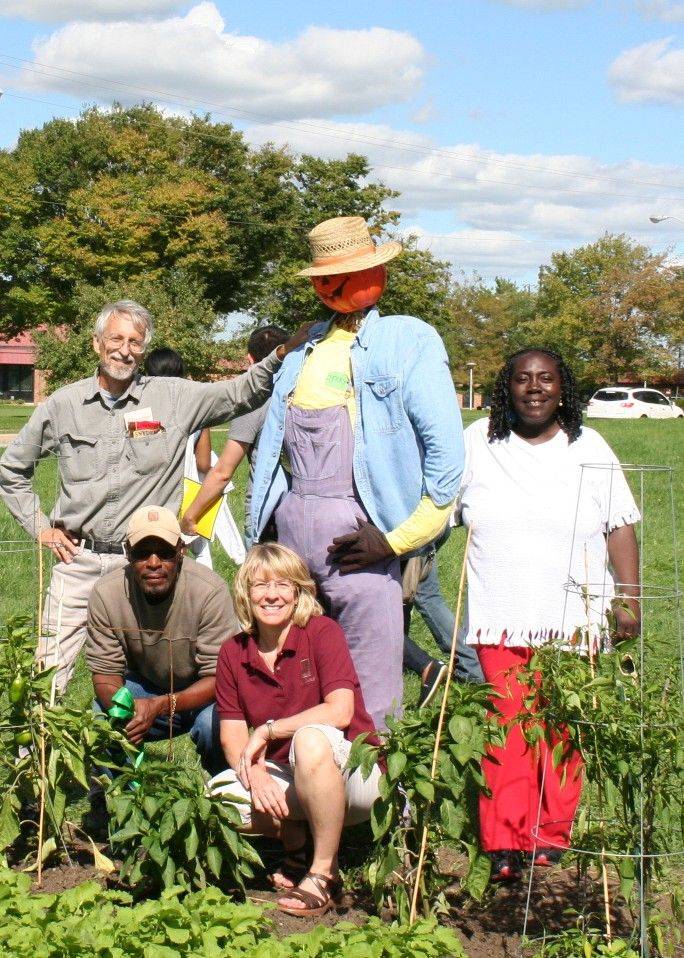
Question 5.
SP: What specific programs or initiatives have you been involved in developing?
Marlin: When we were on the neighborhood safety task force, we helped write or draft the aggravated nuisance ordinance, which is a tool the city can use to address problem properties. We were supportive of the rental registration ordinance. I helped initiate the aggressive solicitation ordinance, and in the end I think we were created a successful ordinance. More recently, we rewrote some of the ticketing and fines schedules, which is another tool that we have to get landlords to maintain properties.
I helped the city sign up to be a Let’s Move partner in the Let’s Move cities, towns, and counties. There’s no funding associated with it, but it’s a framework for the community gardens initiative we’ve been involved in.
Question 6.
SP: What have been your low points during your time on city council? For instance, has there been a time when you felt that the majority of your constituents disagreed with a position you held?
Marlin: I can’t think of a time when I think the majority disagreed. I tend to think every low point is when it’s 11 p.m. and you’re still in a meeting…
I do think there have been some difficult times. They often happen when we considered controversial issues, such as the aggressive solicitation ordinance. Another difficult issue had to do with racial disparities in traffic stops, or, more recently, considering the use of tasers. Those are the really hard issues to deal with. I’m proud of how Urbana has approached each one. You spend a lot of time to listen to people—that’s always the first thing. And that can go on for several meetings. Then you then figure out how to solve the problem or address the issue. We’re in the middle of a couple right now, and I think we’re heading in the right direction.
Question 7.
SP: You mentioned issues relating to racial disparities in traffic stops and also the use of tasers. I wanted to ask you how you feel about the methods of the Urbana Police Department.
Marlin: I’ve worked very, very closely with the Urbana Police Department. They’ve been terrific with helping us deal with issues in my ward and all over Urbana. They’re very much focused on community policing. They’re very open with communication. The police chief has been attending community coalition meetings for years, and I recently joined that group. They’ve been very, very good to work with. I think there’s a commitment here to being transparent, open, and committed to working on issues together.
I don’t think anyone was very excited about a traffic stop task force, but we are, and the police department is participating actively in that, as is the community. I think that’s a good thing.
In terms of tasers, the police are taking into consideration recommendations from the NAACP and the ACLU, in conjunction with ideas from the community.
There’s not a top-down approach here. They work with the community to try to find a middle ground. I think communication is the key, and a willingness to talk things through and acknowledge different points of view. It’s really hard to do that sometimes, but I think they make a very good effort at that.
Question 8.
SP: What do you think still needs to be done in terms of economic development to make Urbana more vibrant?
Marlin: I really like what’s been happening in downtown Urbana, and I think the city has done a lot to improve infrastructure. But we have several great business areas in Urbana. There’s downtown, of course, but there’s also the The Pines and along Sunnycrest. There’s also great potential along High Cross road, where the Menards has purchased property, and I think that will make a big difference. Another place that has great potential is the block just north of the city building. That entire square block is available for development. I’d really like to see something significant going in there.
I think we need another great anchor business in downtown Urbana. We have a lot of great small businesses, but I’d like to see another anchor business with good paying jobs in downtown Urbana. Something like Volition in downtown Champaign. That would go a long way to supporting businesses in downtown Urbana.
A lot of people want to compare downtown Urbana to downtown Champaign, and it’s really not a fair comparison because Urbana is the county seat. It’s the place where where people go to do a lot of the business that related to their lives. You’ve got the county seat, the courthouses, the jail, the civic center, and the library. So much of the property is in the public hands and not on the tax rolls, but it’s still critically important to the community. I think we should compare downtown Urbana to ourselves and what we could be, and not to our much bigger sister city.
Urbana plays a big role for the whole county, and I think we tend forget that or downplay that importance.
Question 9.
SP: I heard what you just said about not comparing Urbana and Champaign, so not to ask that exact question right after you said that, but outside of the different downtown environments, are there other distinctions you think are important between Urbana and Champaign?
Marlin: We’re half the size, and we sometimes forget that too. Well over 30% of our land is not on the tax rolls because it’s tax exempt. And Urbana has always tended to be more of a residential area. But we are our own city, so we have to have a viable tax base and revenue base, especially with legislation that created the Carle situation.
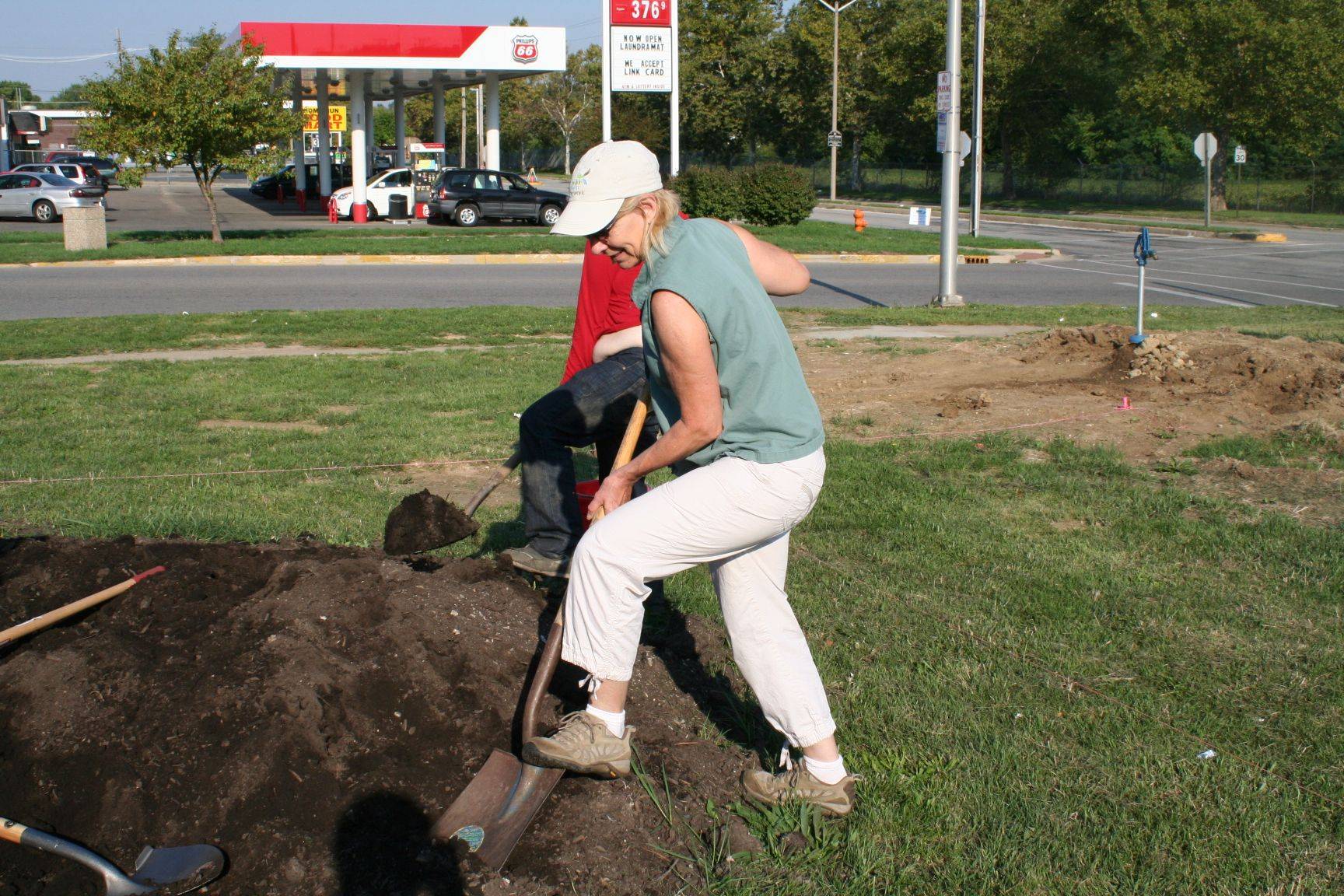
Culturally, maybe you could say there’s a difference. We’ve been a leader in lots of environmental issues like curbside recycling and business recycling.
The University is the anchor for both of us and it’s where a lot of our identity comes from.
Question 10.
SP: Besides economic development, what other challenges are Urbana currently facing?
Marlin: We need to face the fact that we have a lot of people living in poverty or near poverty. If we’re going to have economic development, it has to include that group of people as well. We tend to think of economic development in terms of high tech fields, but we need to have jobs for people with others sorts of skills and training can also participate in. The rising tide doesn’t work if your boat is leaking.
I serve on the board of the Champaign County Economic Development Corporation, and we hear all the time that there are all sorts of jobs available that have trouble finding people who have soft skills, like showing up on time, knowing how to dress, knowing how to speak, things like that.
We have got to focus on workforce development and making sure the growth we have is inclusive of people. I haven’t figured out yet specifics on that. But I think we have to do that because we’re leaving a lot of people behind. We can’t do that if we’re going to have sustainable growth.
We have a significant community of people in need here. If you look past the university, there are whole worlds where the needs are much different. That includes people returning from prison. That’s another huge population that we must work with.
I’m also very disappointed in how the Landmark Hotel has turned out. I think one thing people don’t understand about that is if he doesn’t meet the terms of the agreement, that money needs to be paid back. We were promised an upscale, boutique hotel, and we didn’t get it. I think we need to face that fact and decide what to do next. That’s a great location, and I still it’s important to preserve the historic portion of the hotel, but we need to start fresh, and I think taxpayers should get their money back.
I would love—and this is pie in the sky idea—but I would love to expose the southeast façade of the old hotel to make an open-air plaza near Lincoln Square for things like concerts in the summer and ice-skating in winter. I would want to play up the historic façade of the building. A lot of the building was added on in 1982, and as far as I’m concerned that can go. But I’d love to save the old building.
Question 11.
SP: Given what you said a minute ago about reentry, how do you feel about the Ban the Box initiative?
Marlin: I know we just rewrote our human relations ordinance to clarify the rules regarding people with felony convictions. In general, I would say yes, I agree, but I do think business owners still need to be able to make some judgments. The way we rewrote our ordinance was to say you can’t deny someone an offer, but once you have offered them a job, you can ask about things in their background that may have an impact on their performance in the job, and then you can discuss things in their background.
But we can’t just do the same things we’re doing because there is such a large segment of the population that’s being left behind, and we’re all paying the price for that.
Question 12.
SP: Would you change anything about how city council works?
Marlin: In general, I think our staff and employees are terrific. In terms of the city council, one thing I would change is that I think we need to have an orientation session for new council members. We get elected, a month later we’re sworn in, and there’s no official training. I think we need a tour of facilities, to meet the department heads, to have a session on parliamentary procedure, the Open Meetings Act, and ethics. I think that would help a lot in terms of getting started and running meetings efficiently.
And right now all seven council seats and mayor’s office are all up for election at the same time, so you could theoretically have a complete turnover, which I think would be a really bad thing. So I think staggered elections would be a really good thing, but that would require a change in the city ordinance.
Question 13.
SP: How would you describe your political philosophy?
Marlin: Middle-of-the-road Democrat.

Question 14.
SP: Who are your political heroes?
Marlin: My all time favorite is Harry Truman. He had to make the most difficult decisions of any political leader in our times, and he came through the other end. I find him to be a fascinating character. He was a brilliant person and a student of history, which I think helped him make the decisions he did.
Question 15.
SP: What are some of your favorite businesses or public spaces in Urbana?
Marlin: Wherever my grandson is!
I love Meadowbrook Park. All of the parks, really, but especially Meadowbrook. And the Arboretum. The IDEA garden, and Japan House during cherry blossom time. I’ve enjoyed being able to have coffee on the Curbanas. And the Krannert Center for the Performing Arts.








